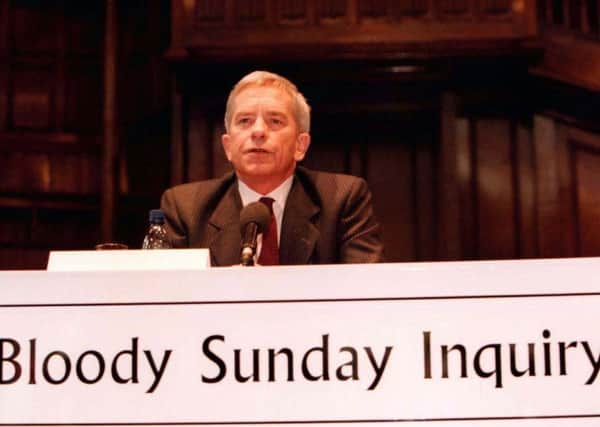Gregory Campbell: ‘I was always clear in my belief that the Saville inquiry would not be the end of the matter’


I was very clear in my belief at the time that it was not the end and unfortunately, with the threat of soldier prosecutions, this has proven correct.
Many people will question how the necessary evidence can be gathered to bring forward murder prosecutions.
Advertisement
Hide AdAdvertisement
Hide AdOnly a few years ago the chief constable outlined reasons why the then mayor of Donegal and Sinn Fein councillor Gerry McMonagle was not questioned about the murder of part-time UDR soldier Lexi Cummings in 1982.


Mr McMonagle fled Northern Ireland having been arrested and charged with the murder.
The reasons offered for failing to question this individual for a crime they were already charged with included the loss of exhibits relating to the crime as well as the passage of time impacting upon witnesses, with some having passed away and others being in ill-health.
It may be the case that the passage of time may be no barrier to bringing forward potential prosecutions of those who aren’t terrorists, for events that happened a full decade before the murder of Lexi Cummings.
Advertisement
Hide AdAdvertisement
Hide AdJust days before the events which became known as ‘Bloody Sunday’, on 27th January 1972 two RUC officers were murdered by the PIRA in the same area as the Sunday march.
They were gunned down but no one has been prosecuted for these murders.
There is a very obvious disparity between the level of investigation of two different incidents only a few days apart.
Like so many cases, the families of individuals murdered by the Provisional IRA stand little chance of obtaining truth or justice in relation to the death of their loved ones.
Advertisement
Hide AdAdvertisement
Hide AdIf prosecutions are taken forward against soldiers for actions in Londonderry in 1972 yet opportunities to even question a named suspect for a crime ten years later are dismissed, then many people will see it as another clear example of a one-sided approach to the past and assisting those whose greatest desire is to re-write history.
Gregory Campbell, DUP MP, East Londonderry